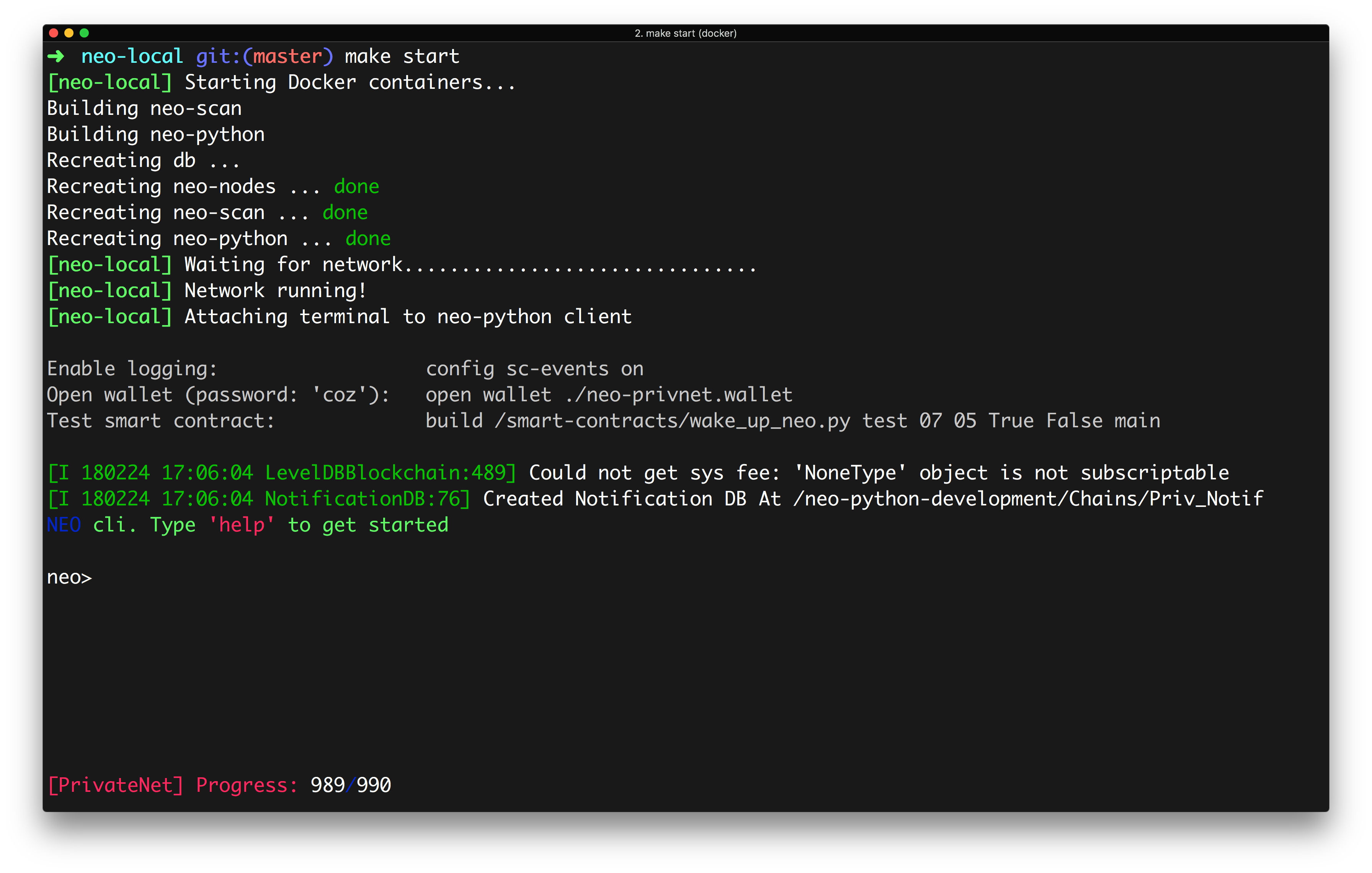Personal blockchain for NEO dApp development!
Quickly fire up a personal NEO blockchain which you can use to run tests, execute commands, and inspect state while controlling how the chain operates.
This project quickly sets this up for you without any prior knowledge needed, along with a number of other utility services that help with development.
This project works on MacOS, Linux and Windows machines 👍
It shares similar goals to the Ganache project from the Truffle Framework.
Please visit the Documentation for instructions on how to install and use the project.









